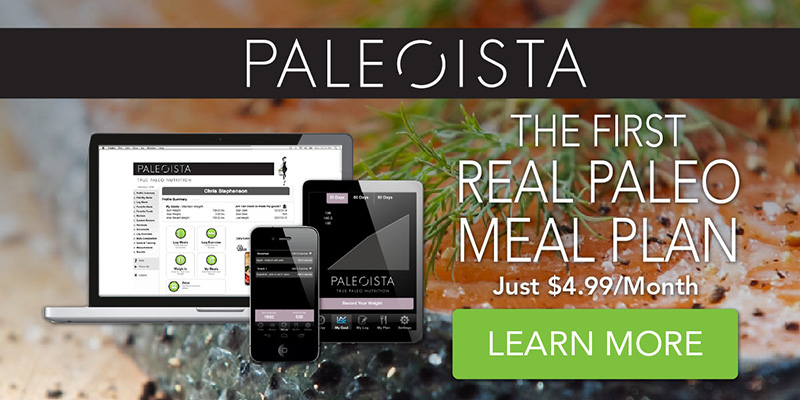Skip the Supplements: Get Your Vitamins and Minerals Through Food
Your current morning routine: multivitamin, fish oil, calcium, Vitamin D, and iron. Oh, and don’t forget a good antioxidant blend and some Coenzyme Q10.
Wait! There’s also a B complex and some green powder for good measure.
And if we want to get into more specific vitamins – let’s take pre-menopausal women – for example, we also need to add some black cohosh, evening primrose oil, and yam cream.
Which takes us to a grand total of seventeen supplements. Which, no joke, is not uncommon to find these days. In fact, in 2013, Americans spent $28 billion on supplements!1
Why are we doing this?
It’s my belief that at least in part, it’s the allure of being able to swallow a pill in order to treat, prevent, or completely cure a wide range of health issues and concerns.
Admittedly, the concept is quite appealing. Overweight? Just take this pill. Feeling low on energy? Swallow that serum. Looking to stop the signs of aging? Ah, there’s a cream for that, too!
Unfortunately, that line of thinking is more in keeping with that of someone living in fantasyland, rather than on Planet Earth.
There is, quite simple, no quick fix, cure-all pill.
Another factor in this line of thinking is the idea that taking these tablets can perhaps offset the poor quality “foods” many chose to ingest for one reason or another.
As if eating a Big Mac is cancelled out by taking a multivitamin!
Here’s the deal: there are certain situations in which taking a vitamin is an important part of a plan to achieve health, but generally speaking, we truly can get all we need from real, fresh, unadulterated food.
When I work with clients online, I don’t prescribe supplements. For one thing, I’m not a doctor. And, since I’m not working directly with lab data, it would be foolish of me to guess what someone may need based solely on symptoms without seeing data from a recent blood draw or saliva collection.
Referring back to the example I gave before, a woman about to go through menopause does not necessarily automatically need to self medicate from the shelves of Whole Foods.
To do so is not only a potential waste of money, it could cause damage. Yes, the herbs are natural, but if you don’t know that you need them in the first place, why risk it?
Go to a naturopath or functional medicine doctor and have some testing done if you’ve been following a true Paleo diet regime and are still not feeling great.
The answer is not ‘a Paleo diet doesn’t work’, nor is it ‘just take supplement X.’
Address your own concerns accurately and then you can safely determine if you do need to supplement with anything.
Now what about general guidelines for how to get all we need from food?
Let’s start with some popular micronutrients people feel they need to supplement with:
- Likely, the most frequently asked question is how one can get enough calcium without consuming dairy. A cup of low fat milk has 314 mg/cup2 while a cup of collard greens has 3753. Guess which one is more alkaline? And guess which one is very acidic and pulls calcium from the bones, leading to osteoporosis4 over time? That’s right, milk! Pass the greens, please!
- Fiber. How can you possibly meet your quota without cereal grains? Vegetables actually provide an average of 7 – 11 times the amount of fiber that cereal grains offer. A cup of oatmeal provides 4 grams. A cup of artichoke hearts has 10.3 grams5 with none of the awful side effects experienced after consuming anti-nutrients. Steam those artichoke hearts and toss ‘em up with some olive oil and lemon!
- Vitamin D. First of all, don’t just jump on the bandwagon and assume you need it because you’ve heard others who live nearby are low. Get tested first! Then, if you find you don’t need it, spend your fifteen minutes in the sun a few times per week in order to allow your body to facilitate production of this essential vitamin that acts like a hormone in the body.
- Fighting a cold? Head straight to the pharmacy for zinc tablets, right? Scratch that. Head straight to the fishmonger instead, as oysters are one of the best foods sources of this immunity boosting mineral.
I could go on for days.
Everything we need, we can find from nature in its purest form, which we can absorb far more easily than a pill or powder.
Save some money and preserve your health by relying on what Hippocrates said, and ‘Let food be thy medicine and medicine be thy food.’
REFERENCES
[1] http://articles.latimes.com/2013/dec/17/science/la-sci-sn-vitamin-supplements-waste-of-money-20131217
[2] http://ndb.nal.usda.gov/ndb/foods/show/76?fgcd=&manu=&lfacet=&format=&count=&max=35&offset=&sort=&qlookup=milk+
[3] http://www.healthaliciousness.com/articles/high-calcium-vegetables.php
[4] http://thepaleodiet.com/paleo-answer/
[5] http://www.doctoroz.com/article/50-fiber-rich-foods?page=1






